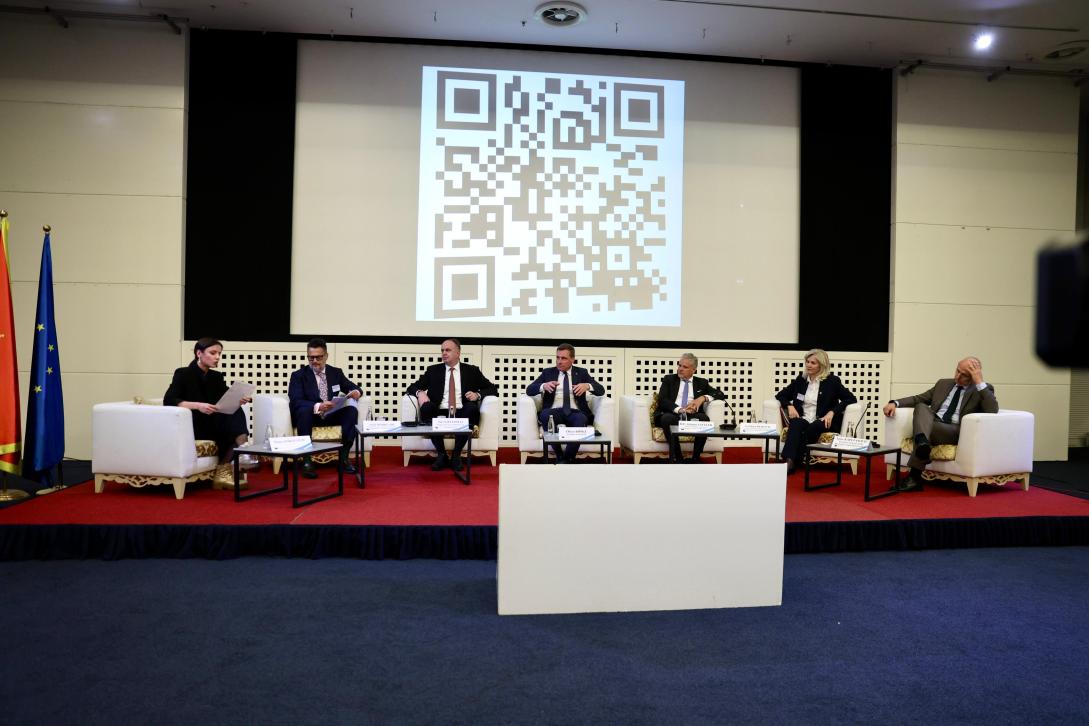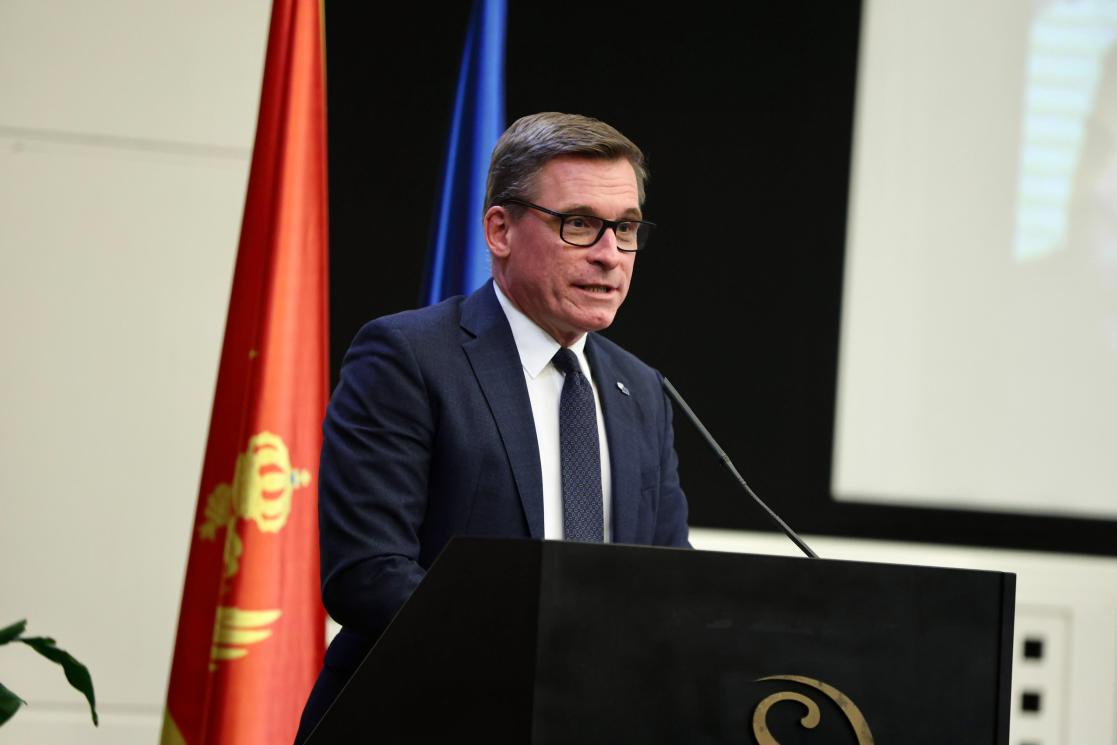10th Western Balkans Civil Society Forum: Accelerating Socio-Economic Convergence with the EU for a Better Life

The European Economic and Social Committee (EESC) launched its 10th Western Balkans Civil Society Forum today in Budva, Montenegro, gathering over 100 participants to discuss how to accelerate socio-economic convergence with the EU for improved living standards across the region. The two-day Forum, 13-14 May is taking place in Budva, Montenegro, to support Montenegro's ambition to become the next EU Member State by 2028 and to serve as a model for the rest of the region.
The Forum is implemented with the support of the European Commission (DG ENEST), the Open Society Foundation-Western Balkans (OSF-WB), the Western Balkans Fund (WBF) and the Regional Cooperation Council (RCC), bringing together authorities from the Montenegrin government, representatives of trade unions, employers, and civil society organisations from the Western Balkans.
The event will open with high-level contributions from Nik Gjeloshaj, Deputy Prime Minister of Montenegro for Economic Policy and Minister of Economic Development, H.E. Johann Sattler, Head of the Delegation of the European Union to Montenegro, Prof. Gordana Đurović, President of the Montenegrin Pan-European Union and Co-chair of the EU-Montenegro Civil Society Joint Consultative Committee and the representatives of the organising institutions: Oliver Röpke, President of the EESC, Amer Kapetanović , Secretary General of the Regional Cooperation Council, and Andi Dobrushi, Regional Director of the Open Society Foundations - Western Balkans.
From the European Commission, Marta Kos, Commissioner for Enlargement, will deliver a video message during the first day of the Forum dedicated to the role of organised civil society in the accession negotiations and the growth plan for the Western Balkans, and Roxana Mînzatu, Executive Vice-President for Social Rights and Skills, Quality Jobs and Preparedness will deliver a video message during the second day dedicated to contribution of social partners and civil society organisations to implementing the European Pillar of Social Rights in the region.
The European Training Foundation (ETF), represented by its Director Pilvi Torsti, will speak at the Forum on 14 May to highlight the importance of skills as a driving force for inclusion, resilience and better opportunities for people across the Western Balkans as part of the EU accession agenda.
Naida Nišić, Minister of Labour, Employment and Social Dialogue of Montenegro, and Željko Jovanović, President of the Roma Foundation for Europe, will also contribute to the opening session of the second day of the event.
A press conference with EESC President Oliver Röpke, ETF Director Pilvi Torsti, and Deputy Prime Minister Nik Gjeloshai will take place following the morning session on 13 May, providing an opportunity for accredited media to ask questions related to the Forum's themes.
Nik Gjeloshaj, Deputy Prime Minister of Montenegro for Economic Policy and Minister of Economic Development said: "We are confident that we will be able to close two chapters at the intergovernmental conference during the Polish presidency in June, and that additional chapters will be ready for closure by the end of this year".
Oliver Röpke, President, European Economic and Social Committee (EESC), underlined: “This Forum sends a strong signal: the future of the Western Balkans lies in the European Union, and civil society must be at the heart of that journey. Together, we are transforming the promise of enlargement into a shared project—grounded in democratic reform, social justice, and economic opportunity. The European Economic and Social Committee will continue to stand firmly beside our partners in the region, every step of the way.”“

Copyright: EUD
Amer Kapetanović, Secretary General of the Regional Cooperation Council stressed: “Regional cooperation is no longer a nice-to-have, it’s a need-to-do. While our GDP per capita has risen from 25% to 39% of the EU average over the past two decades, at this pace we won’t catch up until the 2080s. That’s where the Common Regional Market comes into focus, with a potential to accelerate convergence and unlock up to 10% GDP growth through practical reforms and solutions like green lanes, instant payments, stronger consumer protections, and more. And crucially, these reforms are not happening behind closed doors. More than 500 civil society organisations have been directly involved in shaping them, because meaningful change only happens when people are part of the process.”
Andi Dobrushi, Regional Director of the Open Society Foundations - Western Balkans explained:
"This Forum is about more than policy - it is about the people whose relentless work has carried the region forward through decades of transformation. Civil society in the Western Balkans is already helping co-design our shared European future. At OSF-WB, we support a broad range of actors who bring both grassroots legitimacy and policy insights to the table – from labour market reforms to climate transition. EU integration cannot be reduced to institutional checklists, it must reflect real convergence of values, voices and opportunities. The EU should engage with the region as a partner in building a common and resilient European future. On this path, civil society deserves a place at the table”.
The 10th Western Balkans Forum will conclude its sessions on 14 May by 12.30 with the adoption of a final declaration addressed to national authorities and European institutions.
Follow the Western Balkans Civil Society Forum here | Agenda
Follow live updates on X (formerly Twitter)@EESC_REX
Additional quotes
H.E. Johann Sattler, Head of the Delegation of the European Union to Montenegro: " The new geopolitical reality has made EU enlargement a strategic priority, and Montenegro is once again on a credible path toward membership. But integration is not the task of governments alone—it must be a national project, owned and driven by all sectors of society. Civil society plays a vital role in this process: not only by contributing expertise and monitoring reforms, but also by keeping institutions accountable and citizens engaged. Together, we can ensure that this once-in-a-generation opportunity for the Western Balkans is not missed. "
Pilvi Torsti, Director of the ETF added: " The overall discussions reinforce the need to move forward fast with education and labour market reforms in the region with a focus on skills for the future."
Background
The Western Balkans Civil Society Forum is one of the EESC's key events organised every two years by the EESC's Western Balkans Follow-up Committee in one of the countries of the region. The Forum is a platform for civil dialogue bringing together representatives from the civil society organisatons from the region offering opportunities for cooperation and networking. A declaration is adopted at the end of every Forum with concrete sets of recommendations intended for the governments of the countries of the Western Balkans, as well as for the EU institutions.





